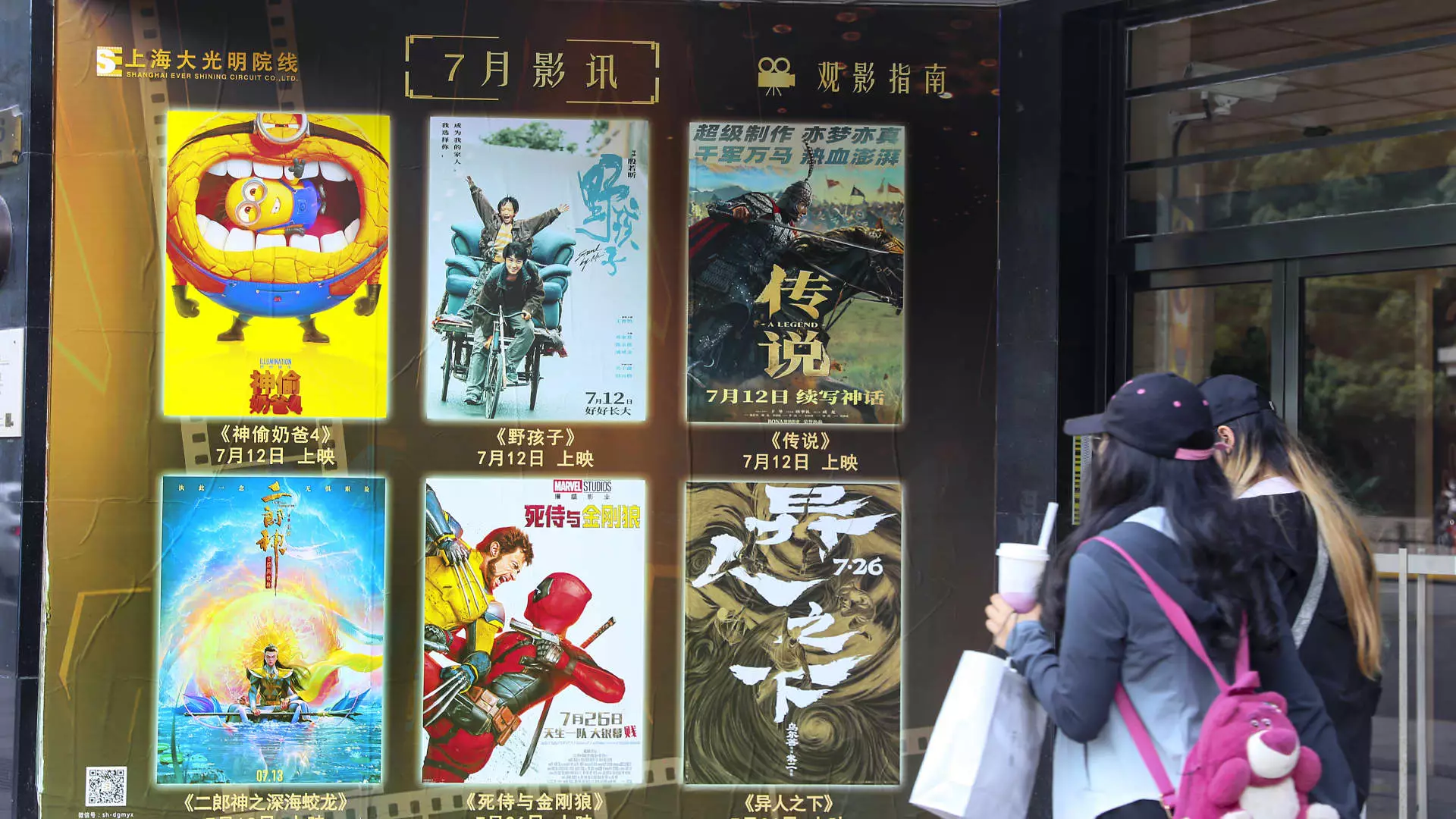The ongoing trade war initiated by President Donald Trump continues to ensnare various industries, and Hollywood—once the superstar of American cultural exports—finds itself in an increasingly precarious position. The recent escalation of tariffs on Chinese imports has not only led to retaliatory actions from China but has also created a chilling wind for entertainment giants like Disney and Warner Bros. Discovery. These companies, long considered the crown jewels of U.S. cinema, have witnessed their stock prices plunge amidst this political maelstrom. The setback to these titans of industry signals a significant shift in how trade wars can impact sectors typically thought to be immune to political turbulence.
For years, the Chinese box office has been heralded as a goldmine for Hollywood studios, incentivizing them to produce films not just for American audiences but tailored specifically for the lucrative market across the Pacific. However, this profitable relationship is fracturing. As domestic production booms in China, the allure of American films is waning. It’s alarming to observe that a substantial number of Chinese audiences now favor homegrown cinema over Hollywood’s big-budget offerings. Ann Sarnoff, former CEO of Warner Bros., succinctly captured this sentiment when she stated that U.S. studios can no longer rely on the Chinese market in their financial projections. A loss of faith in this key revenue stream is indicative of a larger trend: Hollywood’s waning influence.
Local Heroes: The Rise of Chinese Cinema
The evolution of the Chinese film industry has become a compelling story in its own right. While American studios coerce their films into a market characterized by stringent quotas and diminishing returns, China’s filmmakers are capitalizing on domestic narratives steeped in cultural relevance. With technological advancements and a burgeoning pool of talent, local productions are striking a chord with audiences who are more inclined to celebrate their own stories rather than imported ones. Films like “Ne Zha 2,” which recently broke records by generating over $1 billion in a single market, prove that the Chinese film industry is no longer just an afterthought but a formidable player on the global stage.
For the last few years, American blockbusters have dwindled in their box office performances in China—a stark contrast to 2016 when nine Hollywood films crossed the $100 million threshold in the Chinese market. Fast forward to today, and American studios are now compelled to cater to a rapidly changing audience landscape in China, which views their stories as lacking authenticity when juxtaposed against the vibrant local offerings. The expiration of the U.S.-China Film Agreement in 2017, which ensured a minimum release of 34 American films annually in China, has further exacerbated the situation.
The Economic Fallout: A Broader Context
While the box office struggle represents an immediate concern, the broader implications for Hollywood are equally pernicious. The decline in ticket sales will have a ripple effect on the entire film ecosystem, from production budgets to employment within the industry. Studios that once confidently projected revenue from the Chinese market have suddenly found themselves recalibrating their financial maps. Hollywood now faces the grim reality where previous dependability on international returns has turned into a gamble, affecting budgeting decisions and creative directions.
Hidden behind these financial metrics is the larger narrative of how globalization has transformed cinematic storytelling. The rise of the domestic film industry in China serves as a reminder that cultural narratives can flourish outside of Hollywood’s narrative orbit. This is not merely an economic setback but a cultural upheaval; as more countries enhance their cinematic voices, Hollywood can no longer assume a monopoly on global storytelling.
The Uncertain Future Amidst Political Turbulence
As Hollywood wrestles with the fallout of Trump’s trade policies, filmmakers and executives face an uncertain future characterized by rapid changes in audience preferences and economic instability. The volatility of the stock market and the unpredictable nature of trade negotiations provoke anxiety among industry leaders. This situation underscores a pivotal moment for Hollywood—a watershed where the repercussions of political decisions could lead to a paradigm shift in how films are made, distributed, and consumed globally.
The trade war serves as a contentious backdrop to an industry traditionally viewed as the Holy Grail of American culture. However, it’s increasingly becoming conspicuous that Hollywood’s dominance is at risk as it navigates the treacherous waters of geopolitics and shifting audience landscapes. A cultural renaissance may be underway—not within the confines of Hollywood—but on a global stage, where stories reflect the diverse realities of an interconnected world.


Leave a Reply